By Dan Chalcraft
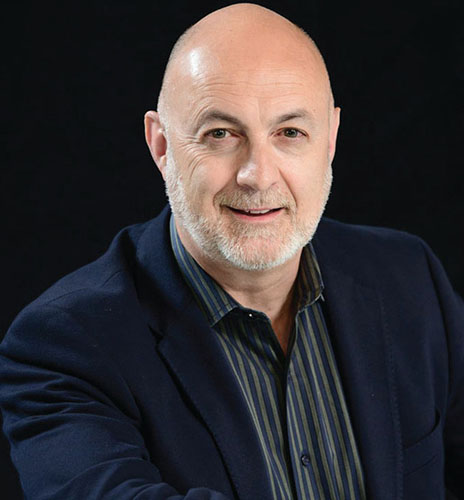
What the Cerebral Palsy Association provides, more than anything else, is community. – Don Renaud
Understanding his clients
Each individual is unique. No two people are exactly the same, and cerebral palsy is no different. Each person with cerebral palsy is affected in his or her own unique way. Don Renaud, a lawyer at Renaud Law Group, who represents people living with the life-long condition as a result of birth trauma, felt that he needed to have more involvement with the CP community in order to better understand his diverse clients.
Don became a board member of the Cerebral Palsy Association of British Columbia in 2005 and has spent over 15 years as an advisor and volunteer while getting to know many people living with CP. “The clients I was working with were generally infants and so I needed to get to know people who were adolescents and young people, older adults, and so on, and understand the whole life process of cerebral palsy,” he says. “Because it just didn’t make sense to work with kids and think that you knew what life was going to be like as an adult. So that piqued my interest initially.”
Don believes the general public has a limited understanding of CP, and stated that the Association has done a “stellar job” of getting out there and raising awareness. Recently, the Association had an awareness event on May 26th at Robson Square in Vancouver to celebrate Cerebral Palsy Awareness Month, and also holds an annual gala and other public events that help increase understanding of CP.
While movies and media, and other type of initiatives have helped educate the public, Don feels it is still a complex situation. Unless you are closely related to someone with CP, you likely do not understand the difficulties people are facing. Don also mentions that researchers are becoming more knowledgeable about the intricacies of the human brain which is so vulnerable, especially at the time of birth.
Changing needs
For those living with cerebral palsy, the areas of the brain affected are typically the basal ganglia which impacts gross motor function, and the cerebellum which affects coordination. It is important that lawyers working to help people with CP understand how this brain damage affects their CP clients at various stages of life. It is important to anticipate how it will play out over a lifetime.
Don feels that parents of children with disabilities need to recognize and be aware of their child’s changing needs, as there are significant costs involved in addressing each child’s specific set of lifelong needs. He suggests that in order to do so, parents often need to explore why the child has cerebral palsy in the first place. Cerebral palsy is damage to the developing brain before, during, or after the birth process. Medical professionals must meet the standards of care to reduce the chances of brain damage caused by birth injury. When there is a failure to meet this standard, the lives of children and parents can be changed forever.
According to Don, exploring why a child has cerebral palsy requires an investigation as to what happened in the hospital at the time of birth. Approximately 30 per cent of individuals have CP as a result of some adverse event created in and around the time of birth. He believes that understanding and investigating breaches in the standards of care is essential if those with CP are to access the sort of resources they will need to manage their condition over the rest of their life.
Renaud Law Group
Renaud Law Group has been a supporter of CPABC from the beginning. His law firm has helped financially dating back 15 years, in addition to promoting events through their website, such as the Gala and Expressive Arts. He hopes to get out there and participate in the upcoming Scotiabank Charity Challenge 5 km fundraising race. “I think I can at least manage 5k without any difficulty myself and at least one of my daughters could knock that off without too much trouble, so I think the biggest challenge will be to see who’s faster – me or my daughter,” he jokes.
Supporting an organization like CPABC is pivotal to its continued growth, Don says, as without groups outside the immediate cerebral palsy community it would be hard to bring awareness to the issues around CP. This organization tries to help bridge the gap by providing information to those individuals who may not know what cerebral palsy is.
Accessibility in Urban Environments
Don has traveled around the world, in particular to the U.S. and Europe, and sees Vancouver as comparatively accessible due to the fact that it’s a newer city. He says on the one hand, Vancouver is at the forefront of accessibility, pointing to wheelchair accessibility and washroom facilities that are better than in many other cities. However, there remains significant room for improvement.
He believes a social paradigm shift has begun. “I think that in an urban environment like this one, where there is enough diversity and individuals, that the disability community in general, and the cerebral palsy community in particular, have a rightful place in society,” he says. The more exposure one has, the more the novelty of difference disappears. “If you’re used to being with people with disabilities you don’t see the differences anymore, you just treat them like everybody else and feeling that the disability community is just like any other. You end up having the same expectations as with anyone else.”
That’s why it was so important for Don to get involved in the cerebral palsy community and develop friendships with adults who have CP. “Unless you do that, you don’t have as much of an understanding or familiarity with what their lives are like and what the challenges are and what their strengths are as well,” he said. “It’s familiarity.”
Don’s message of acceptance and respect is welcomed by the CPABC. We hope he continues to embrace the CP community and look forward to many more years of working together to celebrate our diversity and strength. Thank you, Don and Renaud Law Group!
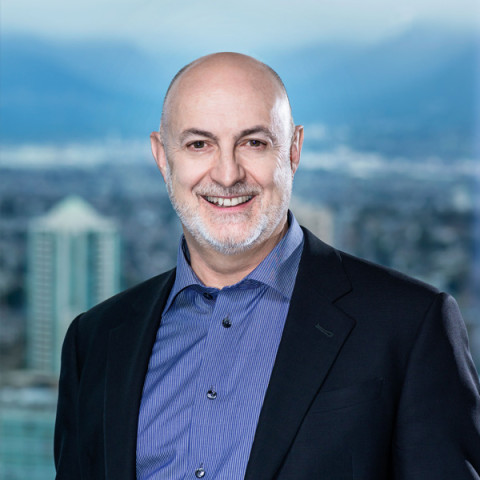
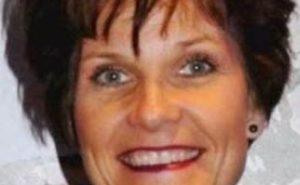 Welcome to our new Executive Director – Elizabeth Specht
Welcome to our new Executive Director – Elizabeth Specht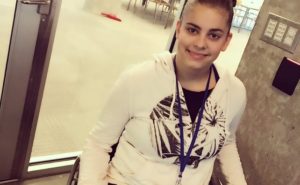 Ella’s Camp Story
Ella’s Camp Story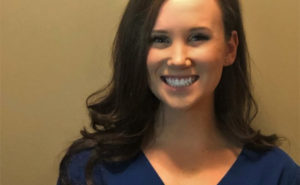 “Patience and perseverance” of dancers inspire instructor – Danika Milne’s story
“Patience and perseverance” of dancers inspire instructor – Danika Milne’s story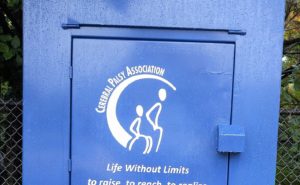 Cerebral Palsy Association of British Columbia Removes Clothing Bins
Cerebral Palsy Association of British Columbia Removes Clothing Bins

